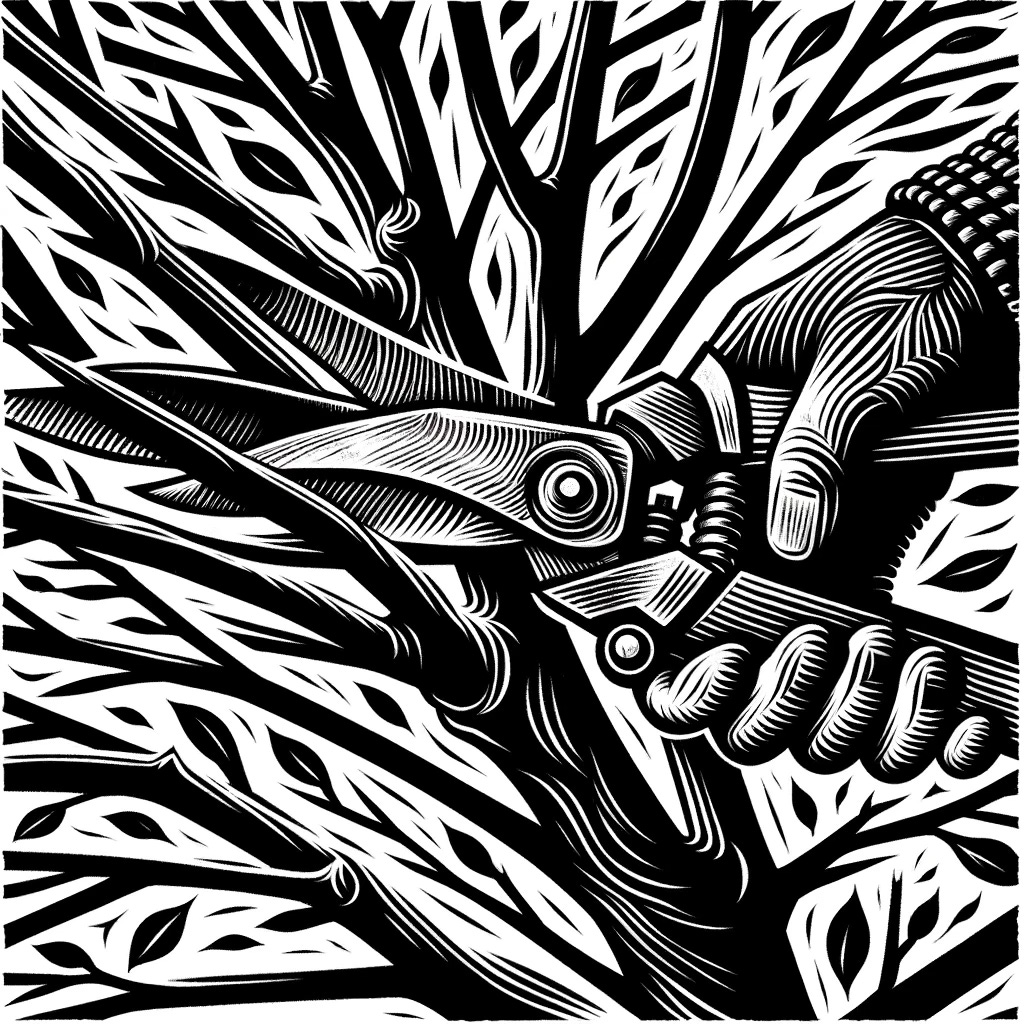To Sever, Is To Save
We must accumulate deaths, stack them up, one on top of the other
The Sweet Potato Vines overflowing the pots in my backyard are wilting, which is not an uncommon sight for me to see. I’m always looking for it: the slackness in the vine, the browning in the leaf’s edge.
Many summers ago I started potting these “spillers” because of their gorgeous neon citrus color, and their ability to power through heat. But I think the main reason I plant them is that they’re so satisfying. They’re rapid growers, which, as an amateur gardener, delights my heart.
The only problem, of course, is that they easily overrun their soil.
That’s actually why they’re wilting now. It’s not a nutritional deficiency or sun damage. They’re simply outgrowing the pot, making it hard to diffuse water throughout the vine. Every time I see this, I know what I have to do.
To save it; I have to sever it.
To advance deeper into the Purgative way, we have to do something similar — we have to embrace the slow, painful process of mortification. Our journey must be full of small and successive surrenders over our lifetime. We cannot reach illumination (or union) with a singular, spectacular death, a one-time decisive blow. No, we must accumulate deaths, stack them up, one on top of the other.
The way we’re pruned, the way we surrender, the way we give ourselves away, is the same way river water cuts a canyon, not with power but persistence.
If we’re persistent, something paradoxical will happen.
Because “It is in dying, that we are born to eternal life,” says Francis of Assisi. Not just eternal life after death, but eternal life after every miniature death. As Saint Paul said, “We are always carrying around in our body the dying of Jesus, so that the life of Jesus may also be revealed (2 Cor 4:10).” Life in the Purgative way is a living death, a paradoxical path to divine life. It may sound strange but we aren’t born into life; we die into it.
The process of mortification is not death for death’s sake. It’s death for life’s sake. It is a living death that executes vice and resurrects virtue within us. It’s what liberates our desires. It’s how we become a fulfilled human being—it’s how we become like God.
Of course, none of this means we have to achieve our own mortification. We have an important role to play, but mortification is more received than achieved. Scripture—both old and new—testify to this:
He’s the Vinekeeper who cuts and prunes the vines so they can bear more fruit (Jn 15:1).
He’s the Jeweler who burns his gold, purging it of every impurity so it will dazzle (Ps 66:10-12).
He’s the Potter who refashions his clay again-and-again so it can bear his grace and glory (Is 64:8).
The morning after I pruned the Sweet Potato Vines, I slid out of bed, found the start button on my coffee maker, walked across my kitchen while it brewed, and looked out the living room window. What I saw didn’t surprise me.
Fullness had entered emptiness. The vines were firm again.
I can’t take credit for it, really. I don’t know how the water molecules spread out along the vine. I don’t know very much at all, but I do know this one truth: pruning creates fullness. It’s the healthy way things grow over a lifetime, even human beings.
If we want illumination, and eventually union, we must embrace the paradox:
To sever, is to save.



Deep down we all see this truth at work in our lives and the world around us. We know our spirituality works this way and our physicality works this way (or we wouldn't have gyms) but I was fascinated to find out our neurology does as well. Turns out the best way to get smarter, stronger, and more brave is to voluntarily do the things you don't want to (Dr. Huberman youtu.be/8OHYynw7Yh4). It seems like hope for God's bright future and faith in his power are enough to change what would otherwise be detriment into benefit.